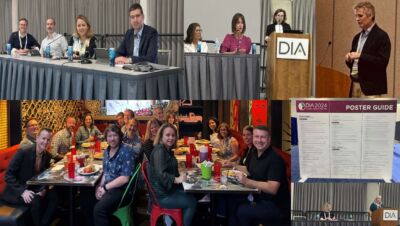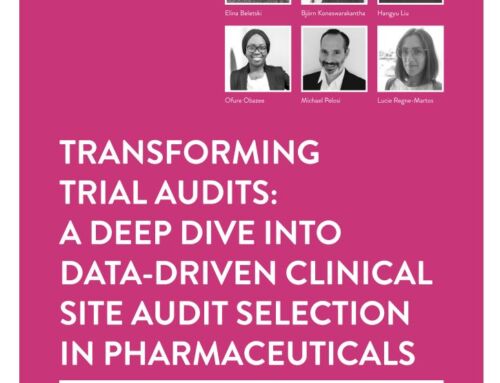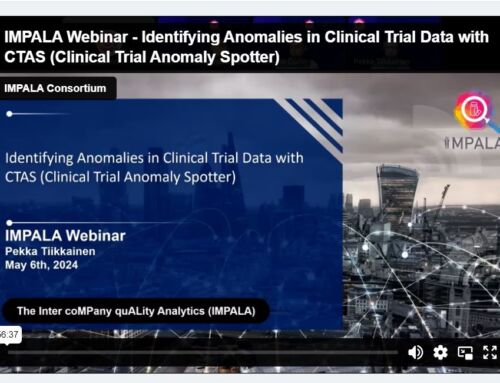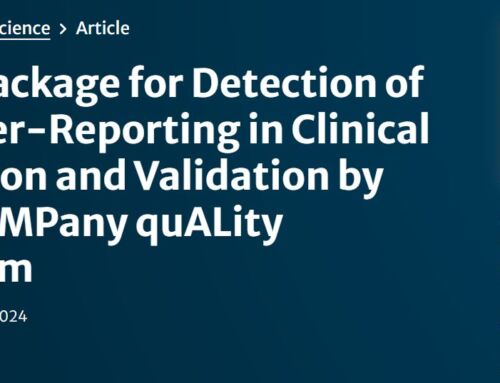The Drug Information Association (DIA) Global Annual Meeting held in San Diego from June 17-20, 2024, brought together professionals from the pharmaceutical industry, regulatory agencies, and research organizations. We were lucky to have a great delegation of IMPALA (Inter coMPany quALity Analytics) members and to have four sessions to showcase some of the work products we are focusing on and the expanding scope of the consortium. It also afforded the group a chance to connect in person for collaborative exchange and sharing some good local cuisine. See below for details on the different sessions where IMPALA was represented.
Session #308: Unlocking Innovation: Implementing Future-Focused Risk-Based Quality Management Quality Briefs – A Cross-Functional Challenge
The session on Quality Briefs (QBs) by Paula Walker, Jamie Bridges and Jennifer Emerson outlined this tool as an output of Risk Based Quality Management (RBQM) and highlighted their role in supporting innovation and expediting the delivery of new products to patients. The participation of the FDA in the panel highlighted their recognition of the value of QBs.
To build trust in QBs, alignment with internationally accepted standards, such as those defined by the International Council for Harmonisation (ICH) and Critical to Quality (CtQ) concepts, is crucial. This alignment should span from study design and Quality by Design (QbD) to RBQM. The goal is to provide health authorities with a transparent view of any issues, mitigations, and their impact throughout the development process, aiding their risk-based decision making.
Session #351: Revolutionizing Quality Management: Harnessing the Power of AI for Enhanced Decision Making and Continuous Improvement
This session featured four use cases from different Pharmaceutical and Biotechnology companies of AI’s potential to revolutionize quality management decision making and enhance organizational processes by Michael Pelosi, Oeystein Kjoersvik, Oliver Fink, and Haleh Valian on behalf of IMPALA.
The use cases demonstrated how application of AI to quality management will increase efficiency and quality compliance through automation and recommendation. Nevertheless the role of humans for results verification and as the final decision maker was highlighted.
Session #324: Using Data Analytics for Good Pharmacovigilance Practices
The session was led by Kiernan Trevett and also included Michelle Ruiz. It focused on the use of data analytics for Good Pharmacovigilance Practice Quality Assurance and demonstrated how data-driven solutions are being leveraged to support the development of quality assurance strategies for pharmacovigilance activities and to generate quality evidence in relation to Good Pharmacovigilance Practice compliance. A use case on leveraging NLP (and in the future maybe LLM) to audit the safety update process was shared – the use case is fully implemented by Roche and will now evolve as an open-source package through IMPALA. Stay tuned!
There is a well-established legal requirement in the EU to conduct risk-based audits of the PV system and its associated quality system. However, there is no stipulation on how many targets to audit over a given timeframe or how many entities to include in the audit sample. So why use advanced analytics in this space? Audits shouldn’t simply be transactional activities that are checked off a list in order to satisfy a regulatory requirement. They should be an independent and objective examination of the state of quality for a particular process, system or affiliate, for example. In this context, quality is not just about complying with regulatory obligations but rather about whether the pharmacovigilance system is meeting its objectives, which are to detect and characterize new and changed risks to medicinal products and to manage those risks adequately. Advanced analytics offers the opportunity to identify the highest risk targets for audit and to increase the volume of evidence generated, which allows us to make more robust conclusions on whether the PV system is meeting its objectives.
Session #248: The evolving Role of Artificial Intelligence in the Medicinal Product Lifecycle
This session focused on the use of AI in medicine, following-up on two position/reflection papers from the EMA and the FDA . In this session (which was followed by a roundtable discussion the next day) Timothé Ménard from Roche discussed with representatives from the industry, the EMA, and the FDA the value proposition of AI in the medicinal product lifecycle. Key takeaways from Timothe Menard include:
- Set the right expectations! Drug development is a highly regulated space and we’re here to serve our patients – AI is not the silver bullet for every single problem
- There are great opportunities though: efficiency, velocity, and transparency: embrace cross-industry/agency collaboration and open-source methodologies (such as IMPALA)
- Last – but not least- we don’t need more regulations. There are already available frameworks and high level principles (EU AI Act, Good Machine Learning Practices (GMLP), GCP, GVP, AI & Data Ethics Principles, etc.) What we need is to “translate” these into practical applications in Pharma.

Montage of IMPALA’s presentations, poster, and social event




